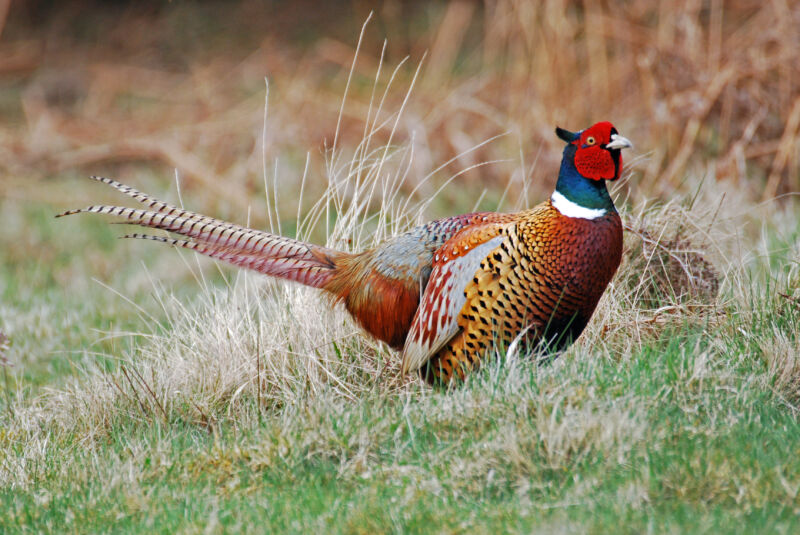
Enlarge (credit: Robert Trevis-Smith)
It's pretty easy to link humans' intelligence to our success as a species. Things like agriculture, building cities, and surviving in harsh environments require a large collection of mental skills, from good memory to the ability to communicate and work together. But it's often less clear what role intelligence plays in species with less obvious mental capabilities. In many cases, it's hard to even measure mental capacities; in other cases, it's hard to guess which capacities might improve survival.
A new study looks at a bird species that doesn't have much of a reputation for braininess: the pheasant. But the researchers behind the study find that pheasants have substantial differences in spatial thinking, and some aspects of that spatial capacity make a difference when the birds are released into the wild. Those birds that do well with navigating a complex maze adopted a larger home territory and did better at avoiding being eaten. And, almost as an accident, the study finds that the birds tend to get eaten more often when they wander out of familiar territory.
Parrots and corvids have reputations as the brainiacs of the bird world. Pheasants, not so much. But they do have advantages for the study of mental abilities. They're easy to raise in captivity, where they can be given various tests, and will adjust easily if released into the wild. They're also big enough that it's easy to attach tracking devices to see what they're doing after they've been released.